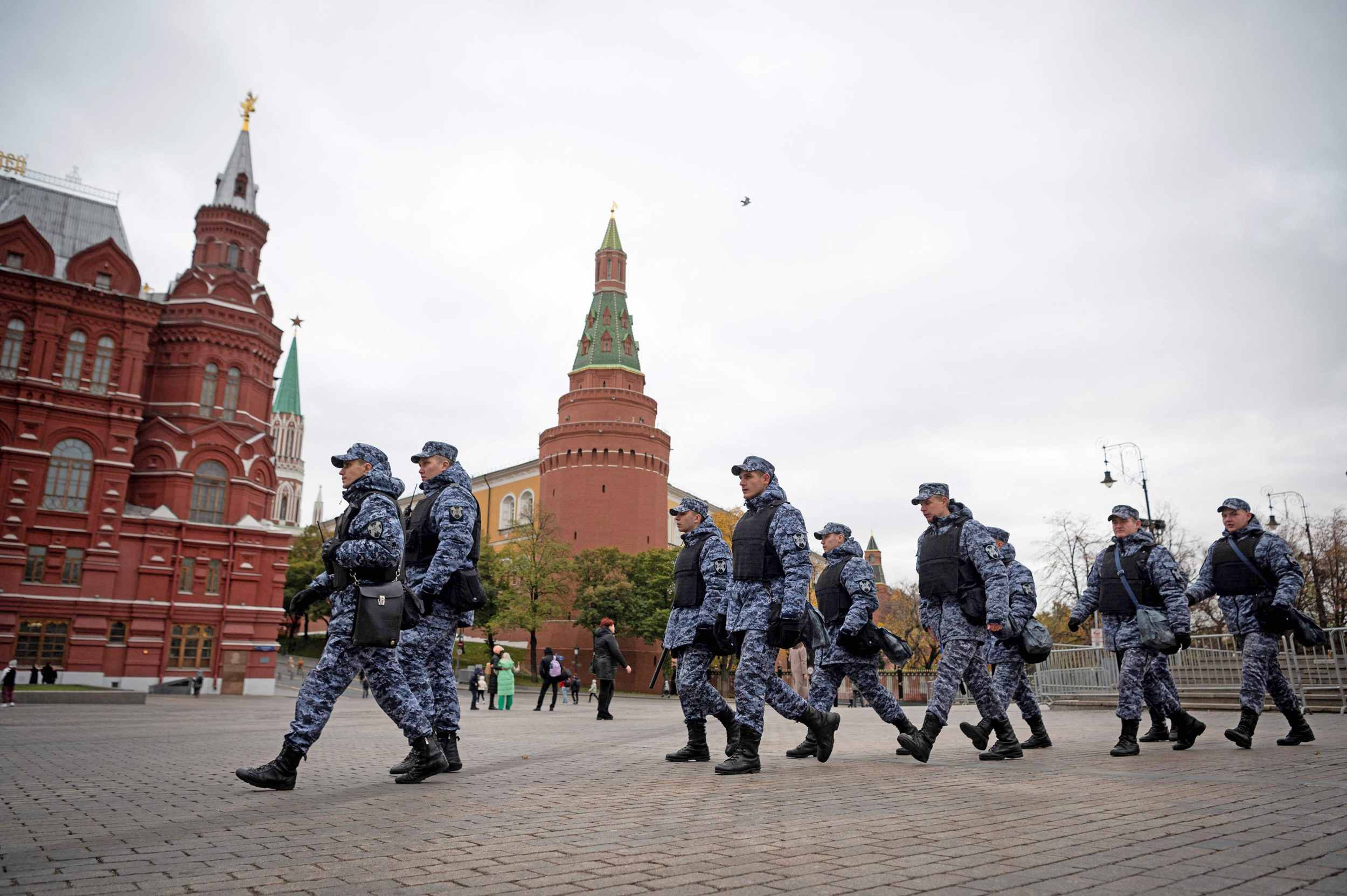/cloudfront-us-east-2.images.arcpublishing.com/reuters/DDGVYPKIDVNWDH7FXGZWZCJ3GQ.jpg)
MOSCOW, March 6 (Reuters) – The Kremlin on Wednesday said that Russia will not meddle in the November U.S. presidential election, and dismissed American findings that Moscow orchestrated campaigns to sway both the 2016 and 2020 U.S. presidential elections.
“We never interfered in elections in the United States,” Kremlin spokesman Dmitry Peskov said in a lecture to students on stereotypes about Russia, occasionally slipping into English.
“And this time, we do not intend to interfere… We do not dictate to anyone how to live – but we don’t want others to dictate to us,” Peskov said.
Peskov said any attempt from abroad to interfere in Russia’s presidential election later this month would be prevented. Russia, he said, did not care about Western criticism of the vote which Putin, barring an unexpected development, is certain to win.
Kremlin spokesman Dmitry Peskov attends a meeting between Russian President Vladimir Putin and Iranian President Ebrahim Raisi in Moscow, Russia December 7, 2023. Sputnik/Sergei Bobylev/Pool via REUTERS/File Photo Purchase Licensing Rights, opens new tab
The war in Ukraine has triggered the deepest crisis in Russia’s relations with the West since the 1962 Cuban Missile Crisis and Putin has warned that the West risks provoking a nuclear war if it sends troops to fight in Ukraine.
Peskov, Putin’s spokesman since 2008, said that relations with the United States had probably never been worse.
But he said Russia did not see Americans as enemies and said that the world’s two biggest nuclear powers had special responsibility to ensure global strategic security.
Relations “have probably never been worse. America is fighting against us,” Peskov said.
He said U.S. tanks were being destroyed by Russian forces in Ukraine and said U.S. aircraft would suffer the same fate if sent to Ukraine.
After Putin sent thousands of troops into Ukraine in 2022, the West slapped what it said were the toughest sanctions ever imposed on a major economy.
The sanctions “do not hurt us,” Peskov said.
On the contrary, he said, they had led to an “internal mobilisation” of the economy and society. Peskov said Russian economic growth of 3.6% last year showed the sanctions had failed.
Asked what the future held for Russia, Peskov said it would not be easy because the tectonic plates of geopolitics were shifting. But Russia, he said, would remain open to the world.
Reporting by Guy Faulconbridge
Editing by Andrew Osborn
Our Standards: The Thomson Reuters Trust Principles., opens new tab
As Moscow bureau chief, Guy runs coverage of Russia and the Commonwealth of Independent States. Before Moscow, Guy ran Brexit coverage as London bureau chief (2012-2022). On the night of Brexit, his team delivered one of Reuters historic wins – reporting news of Brexit first to the world and the financial markets. Guy graduated from the London School of Economics and started his career as an intern at Bloomberg. He has spent over 14 years covering the former Soviet Union. He speaks fluent Russian.
